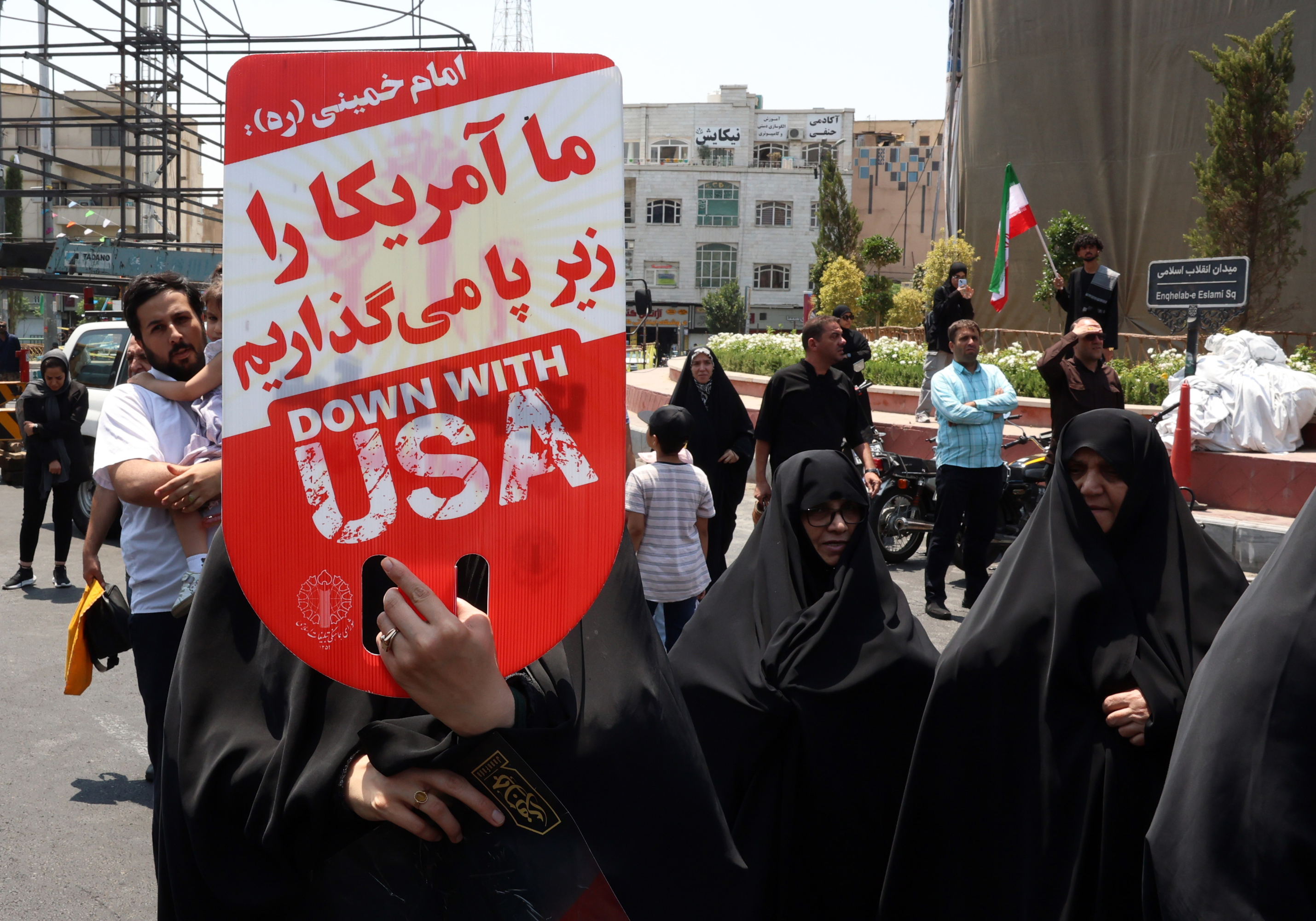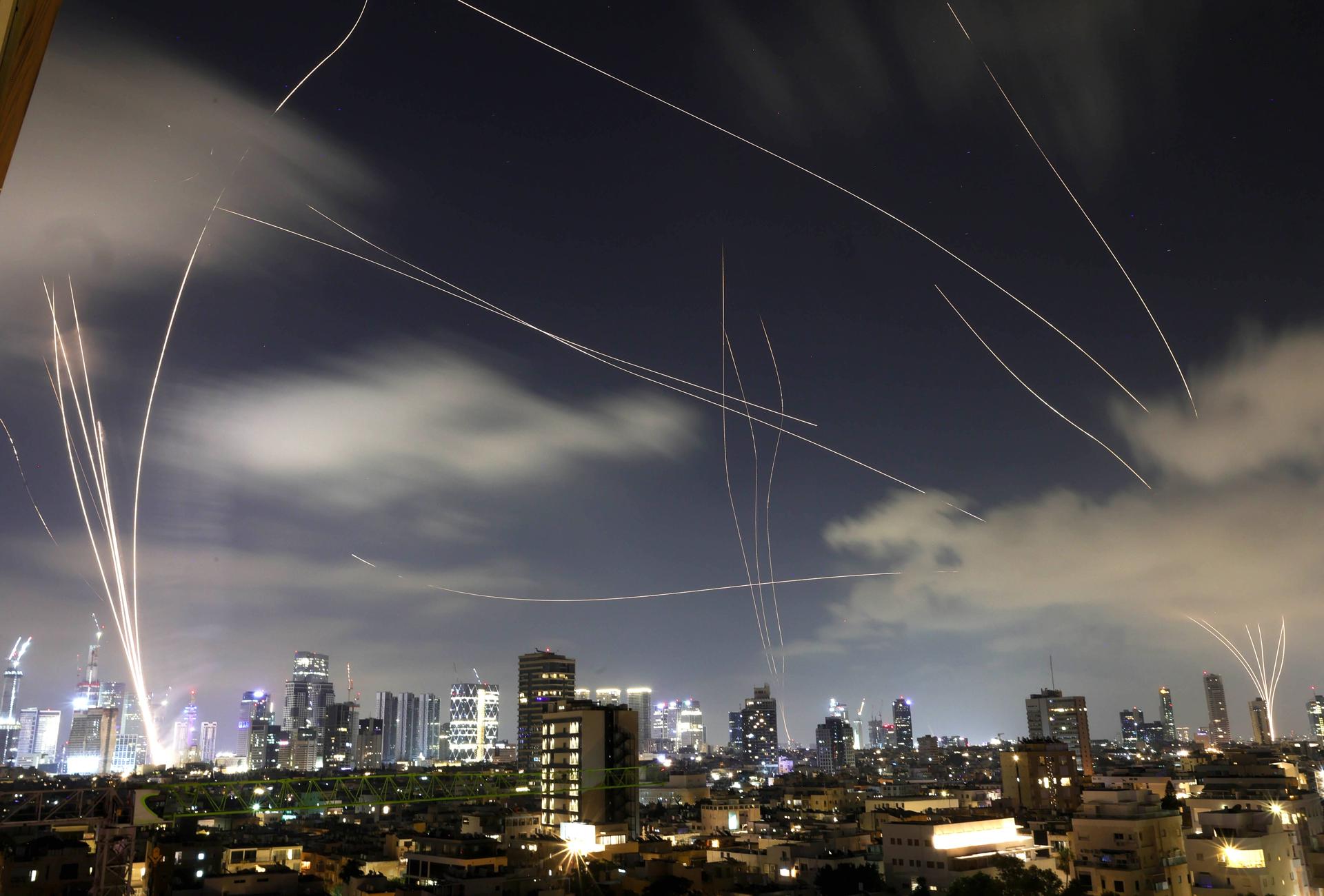Iran asks its citizens to uninstall WhatsApp: Could Israel use the messaging app for spying?

Amid the intense conflict with Israel, Iranian state television has called on citizens to uninstall the WhatsApp messaging service from their phones, accusing the messaging network of providing information to the enemy.
If the conflict in Ukraine, the first hybrid war, has shown us anything, it is that these are no longer like before, where fighting was only done on a military level, but that information is also another extremely important weapon.
“WhatsApp and Instagram are collecting information about individuals and providing the Zionist enemy with their last known location and communications, labeled with their names,” the state network claimed Tuesday, June 17, without providing evidence for its claims.
Meta, the company behind the two services, has reacted to these accusations and has been quick to deny them, asserting that the end-to-end encryption used by its WhatsApp service prevents any intermediary provider from reading messages. It adds that it "does not track the precise location of its users or keep public records of who is messaging whom," nor does it "provide bulk information to any government."

Iranian attacks hit hospital in Israel. Photo: Private social media archives.
“We are concerned that these false reports are an excuse to block our services at a time when people need them most,” Meta said in a statement. “All messages you send to family and friends on WhatsApp are end-to-end encrypted, meaning no one except the sender and recipient has access to those messages, not even WhatsApp,” she added.
Is WhatsApp really vulnerable to spying? But is it possible for a messaging service to be so impenetrable? El Comercio contacted Erick Iriarte, a lawyer specializing in new technologies and digital law, to examine this claim.
“ As a general concept, all platforms have the potential for backdoors—special access points that can breach the systems' security mechanisms —whether designed by their creators or discovered by others, such as intelligence agencies and governments, without the knowledge of the companies that developed them,” the expert points out.

The Persian state announced that it will "temporarily" tighten internet restrictions in the country. Photo: iStock
An example of this was what Edward Snowden revealed in 2013, when he shared documents with journalists showing that the U.S. National Security Agency (NSA) had found multiple backdoors that it used to collect information without the knowledge of users and, in many cases, the companies behind the platforms.
Iriarte points out that it was this concern for security that led companies like Meta, owner of WhatsApp, to incorporate cryptography-related options such as end-to-end encryption, which makes it difficult for messages to be viewed by anyone other than the sender and recipient, and which was later copied by rivals like Telegram and Signal. However, the new concern is no longer how secure the platforms are, but rather which governments have access to their secrets.
“Then the questioning shifted to the origin of the companies, and in the current discussion, they tell you, 'These are the systems available, and what you have to choose is whether you prefer the Americans, the Russians, or the Chinese to have access to the back doors,'” he considers. “That was the discussion when they banned Huawei from selling its equipment in the United States, accusing it of having back doors, and it's also the threat looming over the social network TikTok.”

Protests in Iran against the Israeli attack Photo: EFE
A similar response was provided by Jorge Moreno León, an international expert in cybersecurity and professor of International Relations at the University of Lima. He also mentioned how Snowden's revelations revealed the existence of backdoors in these platforms, although he expressed some skepticism that they are carrying out a massive monitoring program on the civilian population.
“ I highly doubt that Israel or the United States are monitoring Iranian citizens for information, because WhatsApp has become a widely used means of communication for personal, work, and educational purposes,” Moreno says. “I get the impression that the government in Tehran fears that social media will be used to organize groups within Iran, whether for a more forceful response or urging peace, which could destabilize the regime.”
He points to several precedents, such as Euromaidan (the protests and riots against the presidency) in Ukraine between 2013 and 2014 or Russia's internet blackouts to control the flow of information. " The latter is an extreme that Tehran may not want to go to, at the risk of appearing weak and fearful of the population ," he ponders. "And while it could also ban it, the most effective method is to persuade the population not to use WhatsApp because it is supposedly a tool for the enemy Israel to obtain information."

What is known about Israel's attack on Iran? What could happen? Photo:
On Wednesday the 18th, the Persian state announced that it would "temporarily" tighten internet restrictions in the country, claiming that Israel had diverted the network for military purposes.
Jorge Moreno recalls that Iran already banned the messaging platform WhatsApp in 2022, when it was widely used by protesters demonstrating against the death of Mahsa Amini, a young Iranian woman who died in the custody of the morality police for not wearing the Islamic veil properly. At the time, the government accused groups in exile and "enemy countries" of using the platform to "incite unrest and threaten the country's national security" and only relaxed this measure months later.
This internet censorship policy also proved widely unpopular among the Iranian population, with 58% of them opposed to it, according to a study by the governance think tank at Sharif University (Tehran) published in July 2024 and cited by DW in Spanish. It was also ineffective, as 79% of respondents said they continued to use foreign platforms through VPNs, programs that allow users' IP addresses to be obfuscated.

Courier services are playing a more prominent role in conflicts. Photo: iStock
And while it is still uncertain whether or not there is a spying campaign launched by the Israeli government through WhatsApp, Moreno has no doubt that messaging services are playing a more prominent role in conflicts , whether they are used as communication channels or even for the coordination of military operations, such as those carried out by the US against the Houthi rebels in Yemen.
So while it is more than likely that Israel has spies infiltrated, it also suggests that they are obtaining information through some electronic means.
“ If the conflict in Ukraine, the first hybrid war, has shown us anything, it's that these wars are no longer like they used to be, where fighting was solely on a military level. Information is also an extremely important weapon ,” Moreno emphasizes. These range from psychological operations aimed at manipulating the morale of soldiers and the civilian population to the use of backdoors to obtain confidential information, such as the location of high-ranking scientists or military personnel.

Iran-Israel War; June 17 Photo: EFE
“From the photos released, we've seen that there have been precision strikes on the Iranian military leader's bedroom, which shows that the Israelis knew for sure where he was. The same has happened with the location of Iranian air defenses and the whereabouts of some scientists,” he says. “ So while it's more than likely that Israel has spies inside, it also suggests they're obtaining information through electronic means .”
Meanwhile, Erick Iriarte emphasizes that while tools like WhatsApp, Telegram, Signal, and other online messaging platforms are convenient because they can be used anywhere, they are also a double-edged sword, vulnerable to third-party control.
"If I'm a high-level official dealing with confidential information, using an untested instrument could mean I'm handing over secrets to someone else, and it doesn't necessarily have to be in a war situation," he notes.
"For example, if the Presidency of the Council of Ministers has a WhatsApp, Telegram, or Signal group, it should be taken into account that none of these companies have offices in Peru, and their interests do not necessarily align with those of our country. Let's also remember that many press investigations have been based on WhatsApp conversations, which is proof that information is being transmitted over an uncontrolled network."

Smoke from an oil refinery rises over Tehran after an Israeli attack. Photo: EFE
But despite these disadvantages, many Iranian users face few options to replace WhatsApp as a means of communication, as it is so embedded in their daily lives.
“ Taking away WhatsApp would mean losing a key means of communication with their families, which could lead to uncertainty, the spread of rumors, and misinformation,” Moreno warns.
It could also prove ineffective, with Erick Iriarte recalling a WhatsApp block that occurred in Brazil not long ago due to a legal issue.

Iranian users face few options to replace WhatsApp as a means of communication. Photo: EL TIEMPO Archive
“The first to complain were citizens and even government employees who also used this platform for work,” he says. “The consequences will be felt primarily by users, and while it's easier for government workers to control its use—remember that Alexa and other devices are prohibited in some US government offices—it's going to be harder to achieve among ordinary citizens, who will complain.”
Taking away WhatsApp would mean losing a key means of communication with their families, which could lead to uncertainty.
As for replacements, he considers Signal and Telegram to be the best alternatives. And while there is also the option of creating something local, the development and deployment time would leave a huge void in Iranian society, as well as create problems contacting family members who may be abroad and not using the same platform.
This would also result in advancing a process called the "balkanization" of the internet, where each country has its own WhatsApp, Instagram, and Facebook for fear of its neighbors . Therefore, we would experience a web that might be more secure, but also fragmented and diminished. "That's one of the biggest discussions regarding the internet," he points out.
eltiempo





